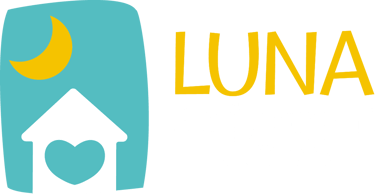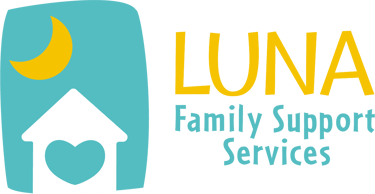Poder a la Profesión/Power to the Profession: General comments and specific response to Cycle 7+8
Feedback and Comments from L.U.N.A. Latinas Unidas por los Niños de América- a strategic alliance between Latina early childhood professionals. This organization was created to support the development of Latina educators through a virtual learning community that translates research to practice, provides professional development, and advocates for the needs and contributions of Latina educators and the families the serve.
Latinas play a vital role in the future of the Early Care and Education Profession:
Immigrants and foreign-born educators are an increasingly vital segment of the early care and education workforce: According to The Migration Policy Instituteat a national level we are at least 20% of the workforce, but in many jurisdictions, we are closer to 40% and even 50%. However, we are over-represented in the lowest levels of the workforce- namely family child care and center-based assistants. This is concerning, given that demographically, we are the future of the early care and education workforce.
Dual Language Learners are the fastest growing segment of the child population in the USA. Demographic projections suggest that by 2030, 1 in 3 children will be Hispanic. However, several studies have documented that Hispanic children experience significant gaps in access to regulated early care and education. For example, CLASP’s Disparate Access research, documented that Latinx children have the lowest rate of enrollment in childcare subsidies.
We are a crucial link to access equity and socio-emotional learning. Dual Language Learners are OUR children: from our familias and our barrios. We know them and their families intimately. Even when we control for income/education, we are their trusted Family, Friends and Neighbors; the first choice for most working families from ethnic communities, especially for infants and toddlers. According to Marci Whitebook, Director at the Center for the Study of Child Care Employment, we are performing the “lion’s share of caring for the poorest children, with the least supports”.
We offer an untapped wealth of cultural and linguistic responsiveness and expertise that is often overlooked and undervalued: Our assets can be inadvertently dismissed by a strong push to “professionalize” the workforce, not taking into account our existing funds of knowledge. Immigrant and refugee early childhood educators are not clearly considered in the design of many state CCDF-QRIS plans. According to CLASP, although most CCDBG plans mention underserved DLL children, few plans clearly articulate and describe in detail the plans, strategies and investments that will be made to engage, train and develop providers who are currently serving these children.
Quality dollars must be distributed more equitably: Recent “childcare supply studies” documented childcare deserts, but failed to recognize that in these vast “deserts” there are thousands of women who provide indispensable, accessible and affordable childcare. For example Colorado found that 60% of latino families live in child care deserts. Without the FFN that work in these communities, many key economies (ie: health, construction, hospitality) would collapse. There are few accountability mechanisms that ensure that quality dollars are equitably distributed among all communities.
What we are asking for: Innovative, coordinated, articulated, responsive career pathways that recognize the value that we bring to our increasingly diverse nation:
Establish and promote a process that validates our foreign credentials. We are not professional “blank slates”. Many of us have technical, undergraduate and even graduate degrees from our countries of origin. These should be validated in the USA, in order to give us credit towards advanced degrees. Among it’s duties, the proposed Professional Governance Board should make recommendations and provide guidelines for how these credentials can be validated, a process that is very common in many other professions.
Value our bilingualism and multiculturalism: These are two key assets in socio-emotional learning for dual language learners. Career paths must include courses that validate and promote our ability to support and strengthen home language.
Develop strategic partnerships with immigrant serving organizations and brokers. We are eager and capable learners with a strong entrepreneurial spirit, but we need career ladders that are linguistically and culturally responsive and are offered within the boundaries of our communities . Now, more than ever, being an immigrant is risky and dangerous and we need to feel respected and safe in order to embark on this enormous challenge.
Use innovative strategies for professionalization: We are not afraid of the challenge of elevating our professional capacity, but we require specialized pathways that value and recognize our experience, expertise and competencies. Some promising practices include:
Apprenticeships that award college credit for direct experience in classrooms;
Credentials that award credit hours for skills such as bilingualism and multiculturalism.
Support higher education programs that are offered in other languages i.e: University of Cincinnati’s Spanish AA:
Develop partnership with digital mentors: Research from the Pew Hispanic Research Center shows that Latinx and immigrants are more connected than ever. However, like most low-income adults, we need to advance our digital readiness for personal growth and learning. Libraries and programs like Latino Tech Mentorship are key allies in supporting us in this process.
Develop and support communities of practice that target providers like us. Despite our best efforts, we are not always recruited or welcomed by mainstream associations, CCR&Rs, conferences or networks. We need a learning space that culturally and linguistically responsive and allows us to scaffold into mainstream ECE systems after we gain confidence and strengthen our voice in safe places.
Cycle 7+8:
Recommendation 1
Like many other professions with a shortage of qualified staff, specifically nurses, foreign-born early childhood professionals should be given priority through H1-B, H1-C visas and permanent residency applications.
1a. Licensing exams/competency evaluations should be offered in Spanish and other priority languages to ensure equity and an authentically diverse workforce that is representative of the children being served.
1b:
Equitable access to quality preparation programs should include accessible and affordable English as a Second Language (ESL) programs specifically designed for the early childhood workforce. ESL guarantees that educators of all levels can continue on an upward career path that ensure authentic representative diversity.
Articulated pathways have to include:
Entry-level programs that are offered in community-based “safe” spaces for immigrants, offered in diverse languages through collaborative partnerships of diverse stakeholders that can facilitate outreach to underserved providers
Advanced degrees offered in priority languages such as Spanish (ie: University of Cincinnati on-line AA in Spanish).
Elearning and Spanish-language digital resources.
Recommendation 2:
2a: Preparation programs have to include curriculum and standards that reflect the super diversity among children 0-5 and their families. Research shows that courses that cover topics such as cultural/ linguistic responsiveness are the topics least likely to offered in institutions of higher learning.
Recommendation 3:
The Professional Governing Board (PGB) must be representative of the demographic diversity of the populations of children 0-5 and families in each state.


Power to the Profession⚡
SUSCRÍBETE
Recibe nuestro boletín para ser siempre el primero en enterarte de las últimas noticias y novedades.
Power to the Profession⚡
Poder a la Profesión/Power to the Profession: General comments and specific response to Cycle 7+8 Feedback and Comments from L.U.N.A. Latinas Unidas por los Niños de América...


